In today’s dynamic business environment, ensuring the security of assets, employees, and operations is more important than ever. One of the most effective ways to identify potential vulnerabilities and improve overall security is through security auditing.
A comprehensive security audit provides organisations with a detailed assessment of their current security measures, uncovering areas for improvement and ensuring that systems and processes are aligned with industry standards. Whether you manage a commercial office, retail outlet, healthcare facility, or educational institution, regular security audits are essential for maintaining a secure and resilient environment.
At Smartsec Security Solutions, we offer expert security auditing services for businesses in Perth and across Australia. Our audits provide a clear understanding of your current security posture, highlighting risks and offering practical solutions to enhance protection and ensure alignment with best practices.
What is Security Auditing?
Security auditing is the process of systematically reviewing an organisation’s security infrastructure, policies, and procedures to identify vulnerabilities, assess the effectiveness of existing measures, and recommend improvements. Security audits encompass both physical security systems (such as CCTV, access control, and alarm systems) and operational protocols, such as how employees are trained to respond to security incidents and whether data protection measures are in place.
The goal of a security audit is not only to identify risks but also to ensure that an organisation’s security practices are in alignment with industry standards and tailored to its specific needs. This process provides valuable insights into how well an organisation is protected and what steps can be taken to mitigate potential threats.
Why Security Auditing is Essential
Security threats are constantly evolving, and even organisations with well-established security systems can find themselves vulnerable if they don’t regularly review and update their measures. Conducting regular security audits is crucial for several reasons:
- Identifying Vulnerabilities: Over time, security systems can develop gaps, and new risks may emerge as your organisation grows or the threat landscape changes. A security audit identifies these vulnerabilities, allowing you to address them before they lead to incidents.
- Ensuring Alignment with Best Practices: A security audit ensures that your organisation’s security measures are in line with industry standards and best practices. This helps prevent oversights that could compromise the safety of your assets, employees, and customers.
- Improving Operational Efficiency: By streamlining security processes and identifying areas where improvements can be made, a security audit helps optimise the efficiency of your security operations, ensuring that resources are used effectively.
- Fostering a Culture of Safety: Security auditing encourages a proactive approach to safety and security. By regularly assessing risks and addressing vulnerabilities, organisations can foster a culture of safety, where employees are more aware of their role in maintaining a secure environment.
Key Components of a Security Audit
At Smartsec Security Solutions, we approach security auditing with a focus on delivering comprehensive assessments that address both physical security and operational protocols. Here are the key components of our security audits:
1. Review of Physical Security Systems
The first step in a security audit is a thorough evaluation of your physical security measures. This includes assessing:
- CCTV and Surveillance Systems: We assess the placement, coverage, and functionality of your CCTV cameras to ensure they provide comprehensive monitoring of high-risk areas. Any blind spots or underperforming cameras are identified, and we recommend improvements to enhance coverage.
- Access Control Systems: We evaluate your organisation’s access control systems, such as keycard systems, biometric scanners, or keypad entry. Ensuring that only authorised personnel have access to sensitive areas is critical for maintaining a secure environment.
- Perimeter Security: Our audits include a review of perimeter security measures such as fencing, gates, and lighting. We ensure that your building’s exterior is protected against unauthorised access and that deterrents like lighting are properly in place.
- Intrusion Detection Systems: Alarm systems, motion sensors, and other intrusion detection devices are evaluated to ensure they are working effectively and providing timely alerts when necessary.
2. Policy and Procedure Evaluation
Effective security goes beyond physical systems—it also relies on clear policies and procedures that guide how employees, visitors, and security personnel interact with your security measures. During our audit, we assess:
- Security Protocols and Policies: Are your organisation’s security policies well-defined and up to date? We review protocols such as visitor management, access control, and incident reporting to ensure they align with industry standards and are effectively implemented.
- Incident Reporting and Investigation: We assess how security incidents are documented and investigated. Are incidents properly recorded, and do you have a process in place for reviewing and improving security measures after an incident?
- Employee Training and Awareness: Security policies are only effective if employees understand them. We evaluate whether your staff is properly trained on security procedures, such as how to report suspicious behaviour or respond to emergencies.
3. Risk Assessment and Threat Analysis
Conducting a risk assessment and threat analysis is a key part of the security auditing process. This involves identifying both internal and external threats and evaluating their potential impact on your organisation. Our risk assessment covers:
- Internal Risks: These could include unauthorised access, employee misconduct, or mishandling of sensitive data. We identify areas where internal security may be compromised and recommend mitigation strategies.
- External Risks: Threats such as break-ins, vandalism, or theft are evaluated based on the likelihood of occurrence and the potential damage they could cause to your organisation.
- Mitigation Strategies: Based on the identified risks, we provide recommendations for addressing vulnerabilities. This might include upgrading security systems, enhancing access control, or increasing surveillance coverage in high-risk areas.
4. Regulatory Alignment
Security auditing often involves ensuring that an organisation complies with relevant regulations, especially in industries such as healthcare, retail, and finance. Our audits include:
- Data Protection Compliance: For organisations that handle sensitive information, we assess your data security measures to ensure compliance with laws such as the Australian Privacy Act. This includes reviewing how data is stored, accessed, and protected from unauthorised access.
- Workplace Safety Standards: We evaluate your organisation’s adherence to workplace safety regulations, including how well your security measures align with standards governing the safety of employees, visitors, and customers.
5. Comprehensive Report and Recommendations
Once the audit is complete, we provide a detailed report outlining our findings. This report highlights:
- Identified vulnerabilities: A summary of any gaps or weaknesses in your security systems or policies.
- Actionable recommendations: Practical steps you can take to address identified risks, improve security, and ensure that your systems and protocols are aligned with best practices.
- Ongoing Monitoring: Advice on how to continually monitor and update your security measures to ensure they remain effective over time.
Benefits of Security Auditing
Conducting regular security audits provides significant benefits to your organisation, ensuring that you remain secure, efficient, and aligned with industry standards. Some of the key benefits include:
- Uncover Hidden Risks: A security audit helps uncover vulnerabilities in your physical security systems, operational procedures, or employee practices that might otherwise go unnoticed.
- Improve Security Efficiency: Audits identify areas where your security measures can be improved, helping you optimise the use of your resources and ensure that security systems are functioning at peak efficiency.
- Enhance Employee and Customer Safety: By addressing vulnerabilities and improving security policies, audits help create a safer environment for your employees, visitors, and customers.
- Regulatory Alignment: Security audits ensure that your organisation complies with relevant laws and regulations, reducing the risk of fines or legal challenges.
- Peace of Mind: Knowing that your organisation’s security measures are regularly assessed and improved provides peace of mind for management, employees, and stakeholders.
How We Can Help You
At Smartsec Security Solutions, we specialise in providing expert security auditing services tailored to your organisation’s unique needs. Our experienced consultants work closely with you to assess your risks, review your security systems, and provide actionable recommendations that enhance protection and ensure alignment with best practices.
Feel Free to Reach Out
If you’re ready to enhance your organisation’s security with a professional security audit, reach out to Smartsec Security Solutions today. Our team of expert consultants is here to help you assess risks, improve security measures, and protect your business.
Learn more about our services and how we can assist you by visiting our Services page. Let us help you stay secure and aligned with industry best practices through our comprehensive security audits.



